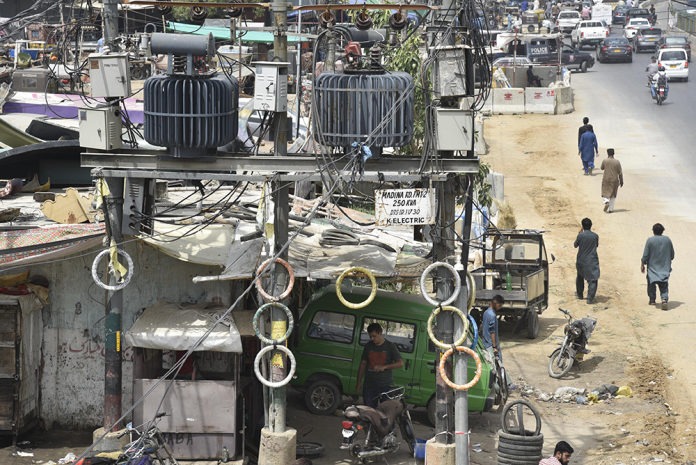A chai stall hums under a web of dangling wires. A transformer, wrapped in political banners, groans with the weight of a city’s neglect. Kids play cricket inches away from an overloaded pole, while no one stops to think twice.
This is Karachi—the “gareeb parwarish shehr” that embraces millions but plans for far fewer. 62% of its settlements are unplanned, with over 9 million people living in informal neighborhoods. In this urban sprawl, infrastructure doesn’t just struggle—it’s swallowed whole. 42% of K-Electric’s network faces encroachment, while kunda connections—illegal hooks on the power grid—turn entire streets into live hazards.
Every year, around 30 electrical safety incidents remind us of the cost of this neglect. But in a city where danger has become background noise, most of us have learned to look away.
That’s where KE’s latest campaign, Spot Karo, Stop Karo, comes in. Not with corporate lectures or dry PSAs, but with something bolder: satire. What if the infrastructure we abuse every day could talk back?
Now it does. Poles grumble, PMTs complain, and transformers finally say what we’ve been ignoring all along. Through the voices of Ali Gul Pir, Umair Najeeb, and Meeran, these forgotten fixtures of the city become the loudest critics of our carelessness.
The humor makes you laugh, but it also makes you squirm. Because beneath every sarcastic jab is an uncomfortable truth: unplanned settlements, unchecked encroachment, and power theft aren’t just urban quirks—they’re safety risks waiting to happen.
This isn’t just a campaign; it’s a wake-up call. By turning infrastructure into a storyteller, it forces Karachiites to confront what they’ve normalized: poles used as signboards, wires strung like garlands, and transformers buried under a mess of negligence.
And in doing so, Spot Karo, Stop Karo reframes electrical safety as what it truly is—a shared responsibility. Because in a city built on resilience, looking away is no longer an option.


